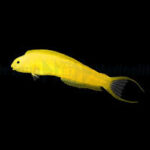The Dragon and Its Relationship with Supernatural Forces in Chinese Culture

The dragon is one of the most powerful and revered creatures in Chinese mythology and culture. It holds a central place in Chinese thought, and its symbolism extends far beyond the realm of physical existence. Dragons in Chinese culture are not just mythical creatures but are also seen as embodiments of cosmic and supernatural forces. These beings are believed to possess divine powers that connect them with the elements of nature, the heavens, and the supernatural forces that govern the universe. In this article, we explore the profound relationship between dragons and supernatural forces, focusing on their association with elemental powers, deities, immortals, and the celestial realms in Chinese mythology and belief systems.
The Dragon as a Symbol of Cosmic Power
In Chinese mythology, the dragon is not simply a fearsome beast, but a complex, multifaceted symbol that represents cosmic balance and natural forces. The dragon embodies the principles of yin and yang, which are fundamental to Chinese thought. According to Taoist philosophy, the balance of these complementary forces creates harmony in the universe. The dragon, often depicted as a fluid, serpentine creature that can move between different realms, symbolizes the dynamic interplay of these forces.
Dragons are also closely associated with the five elements of Chinese philosophy—wood, fire, earth, metal, and water. Water, in particular, is one of the elements most frequently linked to dragons, as these creatures are believed to control rivers, seas, and rainfall. In many ancient Chinese stories, dragons are seen as guardians of bodies of water, and they are invoked to control the flow of water or to bring rainfall, which is essential for the agricultural cycle.
In this cosmic context, dragons serve as intermediaries between the earth and the heavens, often depicted as bridging the gap between the material world and the supernatural forces that govern it. Their ability to navigate between realms makes them powerful symbols of both divine order and chaos, embodying the forces that shape the universe.
The Dragon and the Celestial Realms
One of the most prominent associations of dragons in Chinese mythology is with the celestial realms. Dragons are believed to be creatures of the heavens, and their influence extends far beyond the earth. They are often depicted as ruling over the skies and as powerful beings that possess the ability to travel between the earthly and celestial realms. Dragons are frequently associated with the Emperor of China, who was seen as the “Son of Heaven” and ruled under the divine mandate of heaven. The dragon, as the symbol of the emperor, reinforced the belief in the emperor’s divine right to rule.
In addition to their connection with the emperor, dragons are also related to the Jade Emperor, the supreme ruler of the heavens in Chinese folklore. The Jade Emperor governs the celestial bureaucracy, and dragons serve as his attendants or agents. They are often depicted as messengers of the Jade Emperor, carrying out his commands to maintain order and harmony in both the heavens and the earth.
The relationship between dragons and the celestial realms is further exemplified in the Chinese zodiac, where the dragon is one of the twelve animal signs. In this system, each animal sign is associated with a specific year, and the dragon year is believed to bring about good fortune, prosperity, and power. People born in the Year of the Dragon are thought to possess qualities of the dragon, including strength, charisma, and a connection to supernatural forces.
Dragons and Deities in Chinese Mythology
In Chinese mythology, dragons are often linked with gods and deities, further enhancing their connection to supernatural forces. They are considered sacred beings, often associated with deities who govern natural phenomena, immortality, or the elements.
One of the most significant figures in Chinese mythology associated with dragons is the Dragon King, or Longwang. The Dragon King is the ruler of the four seas (East Sea, South Sea, West Sea, and North Sea) and is often depicted as a powerful deity who governs all aquatic life and weather patterns. As a supernatural being, the Dragon King has the ability to control storms, rainfall, and the waters of the seas and rivers. In some stories, he is called upon by humans to bring rain during periods of drought or to calm violent storms. His power over water links him to the primordial forces of nature and highlights his role as a bridge between the earthly and supernatural worlds.
Another important figure associated with dragons is the Taoist Immortal, Zhenwu, often depicted with a black tortoise and a serpent. While Zhenwu is not a dragon himself, he is sometimes shown as riding a dragon or accompanied by a dragon. As a deity of martial arts and protection, Zhenwu represents the spiritual and supernatural forces that dragons are often seen as embodying.
Dragons are also connected with the goddess Nuwa, who, according to legend, is said to have created humanity. Nuwa is often depicted as a woman with a dragon’s tail, symbolizing her connection to the dragon as a supernatural creature. In this context, the dragon represents both creation and protection, as Nuwa is believed to have used her powers to protect humanity from natural disasters and restore order to the world.
Dragons and Immortality
Dragons in Chinese culture are closely tied to the concept of immortality. They are not only symbols of power and authority but also represent the mystical and transcendental aspects of life. The idea of the dragon being able to transcend mortal boundaries aligns with the Taoist belief in achieving immortality through spiritual cultivation and harmony with the universe.
One of the most famous dragons associated with immortality is the Black Dragon, a mythological creature that is said to dwell in the heavenly realms. According to some legends, the Black Dragon was granted eternal life by the Jade Emperor as a reward for its wisdom and loyalty. The concept of a dragon achieving immortality reflects the Taoist pursuit of eternal life, which is a central theme in Chinese philosophy.
In addition to the concept of immortality, dragons are also associated with the elixir of life, a legendary substance believed to grant eternal youth and prevent aging. According to Taoist texts, the elixir of life is often depicted as a substance guarded or created by dragons. This association between dragons and immortality is a reflection of the dragon’s status as a supernatural being that transcends the ordinary laws of nature.
Dragons as Protectors of the Supernatural
Throughout Chinese history, dragons have also been considered protectors of the supernatural. Their power is believed to shield individuals, families, and communities from harm and danger, particularly from evil spirits and negative influences. Dragons are often invoked in rituals, prayers, and ceremonies as guardians against malevolent forces.
In Chinese temples and shrines, dragon motifs are frequently used to protect sacred spaces. Dragon carvings, statues, and paintings are commonly placed in these sacred spaces to ward off evil spirits and ensure that the area remains harmonious and safe. The presence of dragons in temples dedicated to gods, immortals, and ancestors further highlights their role as protectors of the supernatural realm.
In addition to their use in religious and spiritual practices, dragons are also invoked in various forms of Chinese folk magic and ritual. They are often depicted as guardians of sacred knowledge or as beings that can provide guidance and protection to those who seek their aid. This association with supernatural protection reinforces the belief that dragons are not just mythological creatures but powerful forces that govern the unseen world.
Dragons in Chinese Feng Shui
In Feng Shui, the ancient Chinese practice of harmonizing human existence with the forces of nature, dragons are considered auspicious symbols that can enhance energy flow and bring prosperity, health, and protection. The dragon is believed to be a symbol of the yang energy, representing the active, male, and positive forces in the world. As such, it is often used in Feng Shui to enhance wealth, success, and vitality.
The placement of dragon symbols in the home or workplace is believed to attract favorable energy and protect against negative forces. Dragons are typically placed in locations that are associated with wealth, such as the southeast corner of a room, which is linked to prosperity. They are also often used in Feng Shui remedies to counteract the influence of negative energies, such as the presence of illness or misfortune.
Conclusion
The dragon in Chinese culture is far more than a mythical creature; it is a powerful symbol of the supernatural forces that shape the world. From its connections to the elements and the celestial realms to its associations with deities, immortality, and protection, the dragon embodies the forces of nature, the cosmos, and the divine. Throughout Chinese mythology, the dragon’s supernatural powers and its relationship with the heavens and the earth reflect the intricate balance between the natural and supernatural worlds.
As symbols of power, wisdom, and protection, dragons continue to play a significant role in Chinese culture, art, and belief systems. Their relationship with supernatural forces not only highlights their importance in the spiritual and cosmic realms but also reinforces their status as guardians of harmony and divine order. Whether as protectors, creators, or transcendent beings, dragons remain an enduring symbol of the supernatural in Chinese culture, embodying the mysteries and forces that govern the universe.

